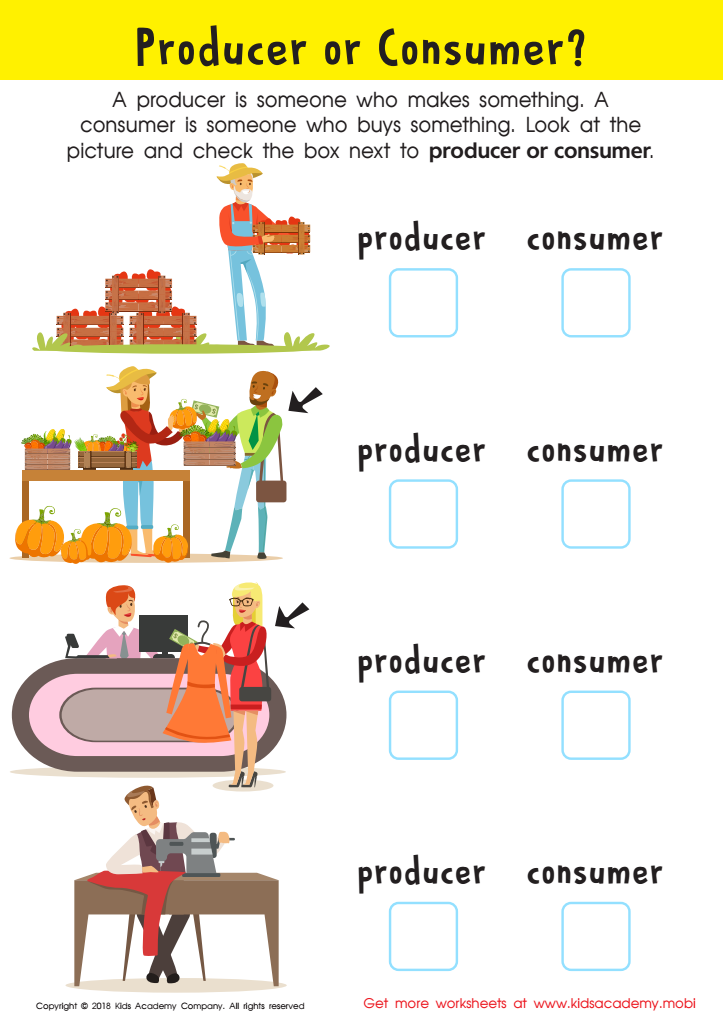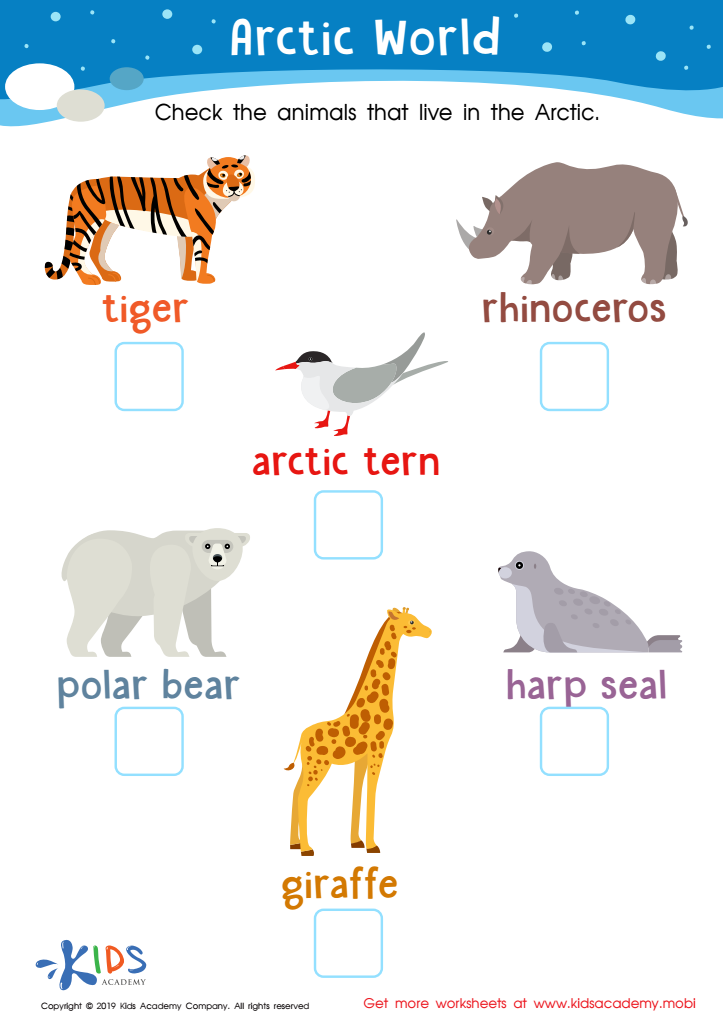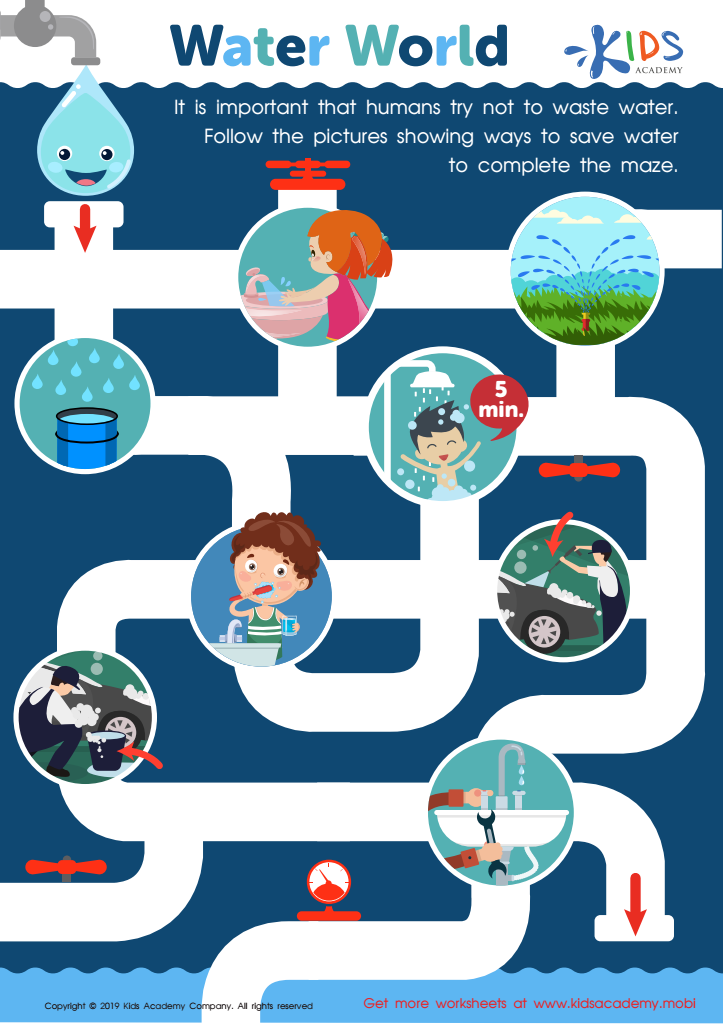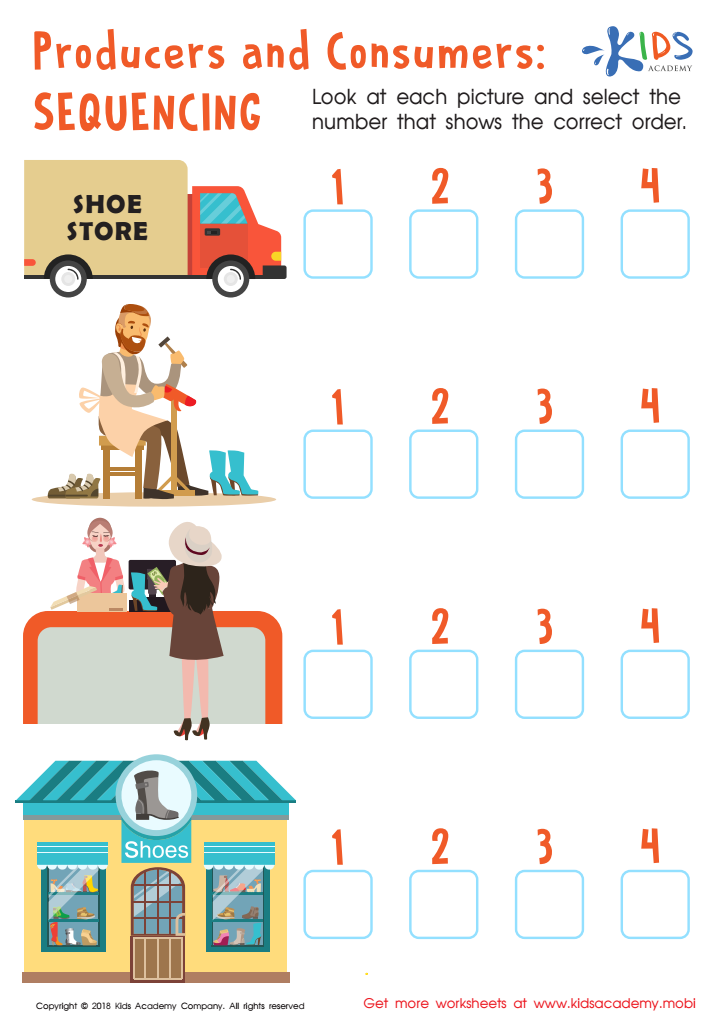Understanding ecosystems Normal Worksheets for Ages 3-7
7 filtered results
-
From - To
Discover the wonders of ecosystems with our "Understanding Ecosystems Normal Worksheets" designed for kids ages 3-7. Our engaging printable worksheets introduce young learners to the basics of ecosystems, focusing on various plants, animals, and their habitats. Each activity is crafted to build foundational learning skills while sparking curiosity about the natural world. With vibrant images and simple explanations, children will develop an appreciation for the environment around them. Perfect for both classroom and home use, these worksheets are an excellent resource to foster critical thinking and enhance early science education in a fun, interactive way.


Producer or Consumer? Worksheet


Ecosystems: Assessment 1 Worksheet


Arctic World Worksheet


Ecosystems: Assessment 2 Worksheet


Water World Worksheet


Animals and Plants: Assessment 1 Worksheet


Producers and Consumers: Sequencing Worksheet
Understanding ecosystems is essential for young children's development for several compelling reasons. For ages 3-7 especially, grasping basic concepts about nature, plants, animals, and their interactions fosters a lifelong appreciation and respect for our environment. Early exposure to the concept of ecosystems helps instill a sense of curiosity and wonder, which is critical for cognitive development and encourages critical thinking and inquiry-based learning.
Furthermore, learning about ecosystems enables children to comprehend the importance of balance in nature. For instance, they can begin to understand how the disappearance of a single species can affect the whole system, which can cultivate responsible behaviors towards nature, such as recycling, conserving water, and protecting wildlife. These lessons are foundational steps in educating a generation that values and actively participates in environmental stewardship.
Additionally, such learning can be incredibly engaging and fun for young children. Simple hands-on activities, like observing insects in the garden or planting seeds, can transform abstract concepts into tangible experiences. These activities not only heighten sensory experiences and motor skills but also promote teamwork and collaboration through shared activities.
Incorporating basic ecosystem education in early learning supports holistic development – fostering emotional, intellectual, and social growth. It is more than just teaching facts; it is about shaping attitudes and values that will benefit individuals and society as a whole.
 Assign to My Students
Assign to My Students
















